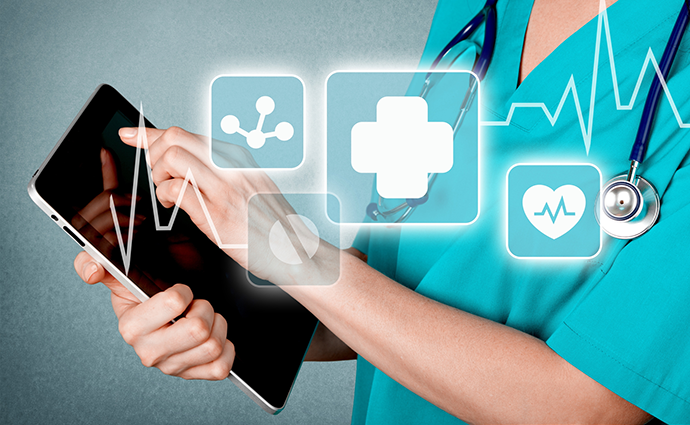Renown Health to Deploy BioIntelliSense’s RPM Device
The BioSticker wearable device continuously monitors several vital signs, like skin temperature and resting heart rate, and provides symptom alerts, which can help support COVID-19 monitoring.

Source: Getty Images
- Renown Health has entered into a collaboration with remote patient monitoring provider BioIntelliSense to enhance in-hospital and at-home care.
The Reno, Nevada-based nonprofit health system, which includes three acute care hospitals, a children’s hospital, a rehabilitation hospital, a medical group, and an urgent care network, will integrate BioIntelliSense's BioSticker wearable device into its clinical remote monitoring services. The device continuously monitors data on patients' skin temperature, resting heart rate, respiratory rate, and sleep, among other key metrics. The device also provides alerts for infection-like symptoms, which can help support COVID-19 monitoring.
The data and corresponding analysis offered by BioSticker will be monitored by clinical staff within the Renown Transfer and Operations Center. This will enable the staff, including physicians, nurses and technicians, to access near real-time information on patients' vital signs and symptoms, supporting clinical decision making.
"BioIntelliSense has a product which is unparalleled in the industry with a visionary leadership team with similar goals and passion," said Mitchell Fong, Renown Health's director of telehealth, in an email. "Partnering to create the gold standard of remote patient care is a shared passion for both organizations but the focus on quality care and improving the ability to care for all patients has been a driver of the relationship."
The first phase of the collaboration will involve the BioSticker device being provided to all patients admitted to Renown South Meadows Medical Center in Reno. Patients will wear the device during their hospital stay and after — at their homes or in ambulatory, rehabilitation and skilled nursing settings.
"We believe we are only scratching the [surface] and we anticipate we will be able to leverage this partnership to improve care for patients across all condition states, acuity levels and risk levels," said Fong. "We are very excited for what the future may hold and think this work can truly have a global impact."
The primary goal of the collaboration is to improve patient outcomes and ensure all patients receive timely access to care, but the technology also has the capability to help reduce frontline staff burden by providing clinical decision support, he added.
The organizations will measure success using indicators such as quality, access, outcomes, cost reduction, and satisfaction for patients, and metrics like population health capacity, staff burnout and satisfaction for frontline staff.
The collaboration will also enable BioIntelliSense to glean insights that it can use to enhance its offerings.
"Our strategic partnership with Renown Health serves as a gold standard demonstration project for other hospital systems," said James Mault, MD, founder and CEO of BioIntelliSense, in a news release. "What we are learning from patients and providers at Renown will help create fully integrated, continuous care delivery that starts during the patient's hospitalization enabling monitoring of their health status throughout their recovery process, and from the comfort of their own home after leaving the hospital."
Regulatory flexibilities amid the COVID-19 pandemic helped accelerate the use of remote patient monitoring, particularly for at-home care. The Centers for Medicare & Medicaid Services launched the Acute Hospital Care at Home program last year, which enables participating hospitals to treat some acute care patients at home using telehealth and remote patient monitoring.
Further, providers have been shoring up their remote care services, either through partnerships like the one between Jefferson Health and BAYADA Home Health Care announced in November or via advocacy groups that support strategies allowing hospital-level care to be delivered at home.
As remote care's popularity continues to rise, retailers are also getting into the arena — doling out large amounts of money in the process. Just last month, the price tag of Best Buy's acquisition of remote care services provider Current Health was revealed: a whopping $400 million.
